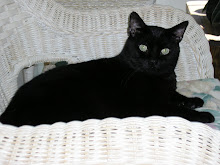Photographs at a Reunion
High school
reunions, a phenomenon enacted every five years (and sometimes more frequently),
is a remarkable event in which to participate and observe from within. There’s drinking, there’s food, there are
several hours of people catching up with each other’s lives and reminding each
other of their great triumphs and defeats back in the day. And cameras, cameras everywhere. Camera flashes are seen all over the place
all through the night, from recording people in small groups and cliques to
the inevitable ceremonial photo of everyone together.
Back in the
day, I was the one with a camera. Our Spanish
teacher at Southern Columbia, Richard Wilson, was also the faculty adviser for
the yearbook. Without a clue from me
that I had an interest in photography (I did, but I don’t recall telling him
that), he appointed me photo editor for our yearbook.
The position
came with some quick instruction on developing photos the old-fashioned way:
expose a sheet of paper under the enlarger, dip the paper in developer until
the photo “appears”, another dip in the stop bath, a third dip in water to wash
all those nasty chemicals off the photo, and finally placed in a photo
dryer. Many photographers might clip
their photos to a clothesline for drying purposes, but our high school darkroom
was too small for clotheslines. Another lesson in breaking a film cartridge apart
in total darkness and threading the negative into the slots of a chemical tank,
fill the tank with developing chemicals, and twirling the handle of the tank so
that the negative is stirred around in the chemicals, and voila, I knew
everything I needed to know to be a yearbook photographer.
There was
nothing digital about photography in 1977!
The rest was
up to me. My sense of history, surely
ingrained in my DNA, most likely assisted me in observing the life of my high
school, deciding which incidents and events were worthy of recording for
posterity. I couldn’t know at the time
which events would be meaningful to me and my classmates in the future. Sometimes the decision was made in a split
second; if something was happening and there happened to be a camera strapped
around my neck, then I would click away. Candid shots of students and teachers in the hall, in class, and at
lunch resulted.
My darkroom
team developed the negatives and the pictures, before handing them over to a
group of girls who would crop the photos and do the layout for our yearbook. My best friend at the time, Nick, helped out
in the darkroom during our lunch period (we both loathed the idea of spending a
half-hour in the crowded, noisy cafeteria). Many times we did do actual darkroom work, but there were just as many hours,
truth be told, spent playing pinochle. And that was my extra-curricular high school activity: observing, shooting pictures, and developing
same without having the sense that I actually participated in any high school
activity.
Did I feel
like I missed anything during those years? Certainly! I didn’t date in high
school, so beyond the pinochle sessions in the darkroom my social life was nil. I spent my free time in those years
developing my other interest in the solitary avocation of writing. So those years weren’t a total loss.
I don’t
recall wasting time in the intervening years wondering if my yearbook
activities would ever mean anything to anyone. I would occasionally stumble across my copy while cleaning my room, page
through a few sections, then place it back on the shelf until I stumbled upon
it again — which might be months or even years later. As for my other classmates, who knew and
who cared. Yet, for some reason, I began to ponder my contribution as various
groups passed around a few copies amongst themselves at the reunion.
I had my
doubts that anyone would appreciate the work involved with publishing a
yearbook. My doubts were heightened when
one of my classmates, retired from the military and now working as a government
contractor, related how many yearbooks he finds in a thrift shop where he
volunteers his free time. He wondered,
who buys these books? I couldn’t answer
him at the time, but I concluded later that the donated books either outlived
their usefulness or outlived their owners.
So what were
the fruits of my labor in the yearbook darkroom all those decades ago? I finally realized it as I observed (again)
various groups of my classmates thumbing through the books, reliving their
past. And when they tired of looking at
photos in the books, they would sort through pictures scattered on a table. One photo in particular had a sobering effect
on me: a photograph of my best friend and darkroom colleague, Nick, prominently
displayed on a memorial table with the other photographs of our classmates who
have passed on.
So be it! Nick was always at our reunions, but only in
spirit. He never bothered to come to any
of the other reunions when he was alive.
Still, my
lesson was not fully learned until I was walking out the door. I saw two of my fellow 50-something alumni
talking excitedly, pointing at different images, and giggling like the school
girls they were 35 years ago. My
work all those years ago had not been in vain.
Yet, this
night, I was the one without a camera. Go figure!
(Thank you
for reading. As Paul Simon once sang, “If
you took all the girls that I knew when I was single….”)


1 Comments:
This was a beautifully told story, one to which so many of us can relate -- thanks for sharing it!
Love,
Janey
Post a Comment
<< Home